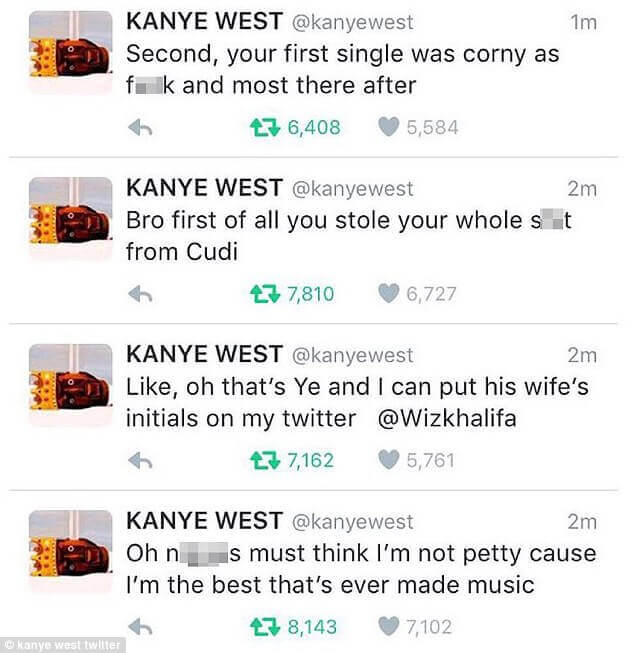Not all online aggression stems from anonymity, and anger isn’t exclusive to Twitter. However, even though we see it everywhere on the internet, Twitter appears to be the popular platform when it comes to rage, as surely as Facebook arouses envy.
From calling out brands for bad service, ranting about snatched parking spaces, or trolling others in the comments, you’ll find it all on Twitter: evidence that anger is a persistent trend on the platform.
Twitter rage and online anger
How much of this online behavior do we exhibit in real life, and why do we behave in socially unacceptable ways online? Why is everyone so angry on Twitter? These are just some of the questions psychologists and cyber-psychologists have sought to answer in their studies. Let’s take a look at a few important points they raised.

Image credit: Observation Deck
Twitter anger is like road rage
Psychologists compare Twitter anger to road rage. Physical distance between the abuser and the one being abused, and the vast platforms they take place in, apparently have much to do with the aggressiveness.
This distance, which provides feelings of safety, and the vastness of the internet that offers a kind of anonymity, are what make people more quick to anger and less concerned about what they’re saying online.
In fact, one study found that 84% of social media users lose their temper more quickly online than in real life, and young people in particular are more prone to it.
While the data shows that Twitter is eroding our sense of humanity, it also shows that opportunities can be made, especially for brands, to bridge the gap and make a connection with their customers. As they say, behind complaints are customer opportunities.
Indeed, there are a lot of brands who use Twitter as a way to connect with their customers. On Twitter, you can build a stronger presence more quickly by buying Twitter followers. A massive number of followers will help establish you as an authority in your niche and this, in itself, is enough reason for even more people to follow you.
Certainly, despite being put on the spot by angry customers, brands can still benefit from the situation. For those on the other side of the fence, who can’t really satisfy an angry customer, it’s hard to tell if their gains are greater than their losses.
Is Twitter bad for us?
Opening up to release pent-up anger can be very healing, in some situations, and it’s probably why all the respondents of a small study said they felt calm and relaxed after venting online. The data further shows that 46% of Twitter users said they tweet as a way to deal with anger, and 37% hoped that the person or group to which the angry tweet was directed will see the post.

Image credit: curiosity
Sadly, the catharsis effect, or the restorative effect of verbally expressing anger that reduces feelings of aggression, is only temporary. This is according to Dr. Brad Bushman, a psychologist at Ohio State University.
Earlier studies on the subject, as a matter of fact, propose venting doesn’t work at all, even among people who believe in it or people who report they feel better afterward.
These studies show that venting has an opposite effect. Venting actually increases aggression overall and the more you feel better after your rant, the more aggressive you’ll tend to be.
When you use catharsis as a way to deal with your anger, you actually increase your risk of developing cardiovascular diseases. According to a recent study, there is a correlation between heart disease and people who often tweet angry messages. Interestingly, the opposite seems to be true for people who often use positive words in their tweets.
Although this emotion is often seen on Twitter, it’s clear that Twitter, per se, is not the reason people resort to aggressive behavior on the platform. It sets the environment and emboldens a person to release negative feelings, but acting on the emotion is still largely dependent on the person.
Controlling your anger and dealing with aggressive behavior on Twitter
Does Twitter constantly send you into a rage? Do you find the need to vehemently trash businesses that don’t live up to your expectation with a long series of tweets? Does it make you feel helpless when people verbally abuse you or your company on the platform?
Here are some ways you can control your anger so it doesn’t control you, and advice on how to handle people who troll you on the platform.
Ignore and walk away
Did something just randomly irk you, or did someone go out of their way to say something offensive to you? Ignore it and walk away. It’s easier said than done, sure. We are all humans, after all, and inclined to anger, particularly when provoked.
Breathe. Count 1 to 20 or 1 to 100, as long as takes, really, until the overpowering feeling of anger disappears. The last thing you want to do is send an angry reply and get into a tweetstorm of chaos, in which you might become famous for all the wrong reasons.
Kanye might not be the best example to follow on Twitter. He’s responding to Wiz Khalifa saying “KK” on Twitter, and Kanye’s wife is Kim Kardashian. Wiz has his own strain of marijuana called Khalifa Kush, better known as KK:

Kanye, get off Twitter and go find a funny YouTube video instead. Or talk to Wiz like an adult and ask him what he meant…
Stay cool and professional
If you absolutely must reply, then aim for a casual, dispassionate tone. If you’re a brand and you’re being called out by an angry customer, then you have more even more reason to stay cool and professional.
Take this as an opportunity to win that customer over. If that customer has leagues of followers, they’re all likely to see the exchanges and, depending on how you handle it, you may gain their favor, enough that they might even follow you. Customers love personalized interaction with brands. So, win them all over with your sensitivity and sincerity, and gain some new fans or followers too. Few people are as cool as Neil deGrasse Tyson:
Apparently, you don’t need to be human to enjoy “Astrophysics for People in a Hurry”. Leo looks to be gripped by the chapter on Bark Matter. pic.twitter.com/HXx65xXNZb
— Neil deGrasse Tyson (@neiltyson) June 14, 2018
You can also grow your followers organically if you buy Twitter followers. This works because when people see how popular you are, they’ll have to come check you out too. If they like what they see, they’ll probably follow you.
People tend to follow people who have a large following. This is how social proof works.
Be the bigger person
There’s something spiritually appealing about the thought. It draws out positive emotions, like when you’re feeling all grown up and mature. An honest but non-combative response will show that you know how to handle criticism, and can respond to it effectively. That’s what people want to see out of a brand.
Whether you’re in the wrong or not (but especially when you’re wrong!), do apologize and just be the bigger person. One of the teachings of Buddhism, which may come in handy here warns us about holding on to anger. It is perfectly summed up in the quote:
“Holding on to anger is like grasping a hot coal with the intent of throwing it at someone else — you are the one who gets burned.”
Because, really, anyone who harbors hatred in his heart is suffering, just like the people they throw that hatred toward. This is also very true on Twitter. For all you know, the person you’re upset about isn’t even thinking about your disagreement and is probably enjoying his day — maybe even having the time of his life. Who do you think has it better: you or him?
Do yourself a favor and just let it go. Life is too short to spend it all in anger!
Block them
One simple solution — and one that involves less drama — is simply blocking them on Twitter. If their posts tend to irritate you, then prevent those people from sending you messages or tagging you by blocking them.
If you’re not going to say anything nice, just be quiet!
There are many reasons why people behave aggressively on Twitter. Some people hurl angry words at others because they feel safe doing it from their living room, while some simply want to vent their anger.
Whatever the reason for that Twitter rage, studies confirm it destroys not just our sense of humanity but also our health.
Not everything that feels good is healthy, even if you’re feeling the relief of a pent-up emotion finally being released. We can always get angry about something but remember that you can choose not to act on that anger aggressively, but to channel it towards something that will actually be useful.

Image credit: Discover Magazine

